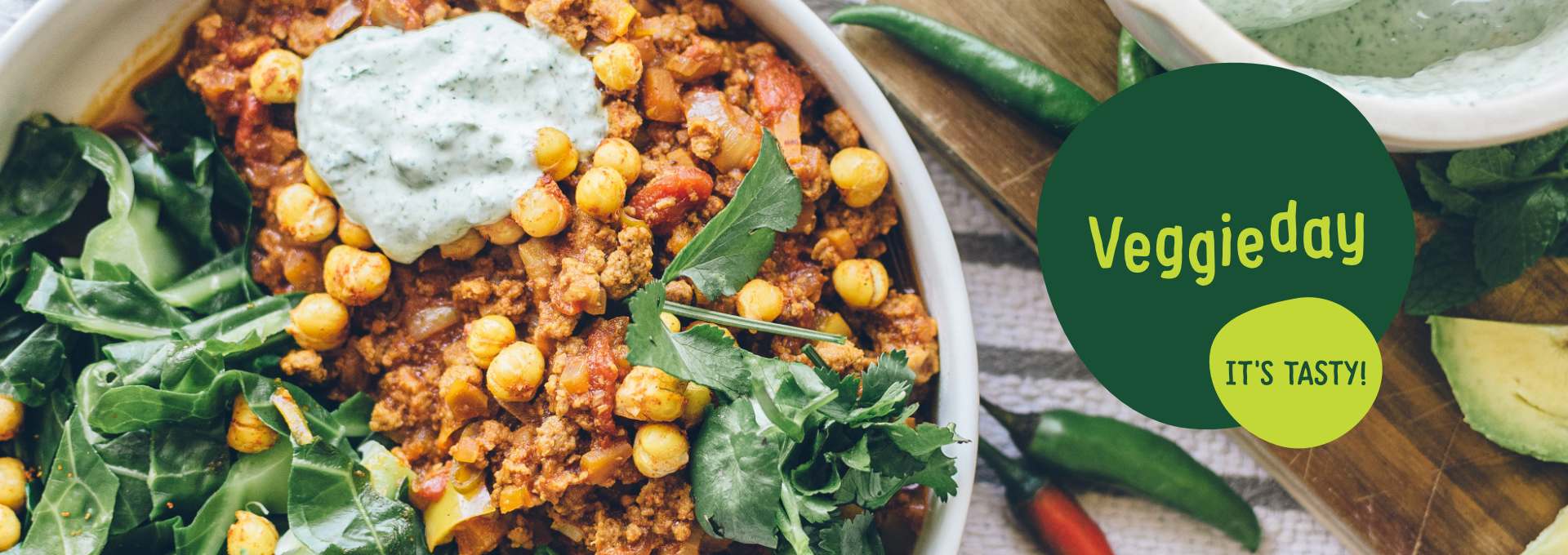The project "Veggieday - It's Tasty!" launched in October 2021 (with the slogan "Veggieday - Tasty Thursday!" at the time) has come to an end. Find out more about what led us to end the project, what we learned from it and what will happen next.
What led to this decision?
There are several points that, considered as a whole, led us to stop the project. First of all, we found great differences in terms of openness to a plant-based diet from one city to another and from one municipality to another. On the one hand, we encountered strong resistance from some cities and municipalities, and our efforts to promote plant-based food were violently rejected. An alternative solution would be to introduce a political change to enforce a plant-based diet in cities and municipalities. On the other hand, some cities were already exceeding the demands of the Veggieday project. These cities, such as Geneva for example, understandably did not see the point of joining Veggieday. Finally, the difference between municipalities and companies was also striking. The companies that responded to our request were interested in the idea of expanding their plant-based offer. In this case, the problem was rather that they had already designed their own sustainable menu lines or that they had strict rules on visual identity, which prevented them from using another logo on site. Many of them also opted for a completely different strategy called nudging. This means that instead of highlighting the extension of their plant-based offer, they chose to expand it quietly.
What did we learn from this?
The Veggieday project allowed us to build on our many years of experience while gaining new insights:
-
We have made contacts with various people who, through their positions, could help us in our mission to make plant-based food more accessible in public institutions.
-
Various organisations have supported Veggieday. The resulting connections have already led to new ideas and joint projects.
-
We gained a better understanding of how food-related responsibilities are managed on a municipal and communal level.
-
We have learned about the large differences between cities when it comes to plant-based food.
-
We now know that many organisations do not want to inform the public about the expansion of their plant-based offer.
-
We maintain our position that it is essential to provide vegan food in public catering establishments. One idea for further work would be to reduce the scope of the project and focus on hospitals, for example.
What now?
Of course, we will remain in contact with the Veggieday participants and continue to support them according to their needs. However, for the reasons mentioned above, we want to devote more of our resources to areas where we can have an even greater impact. We have learned valuable lessons that we want to use in future projects. For example, as stated above, one idea would be to work directly with hospitals to ensure that vegan food is readily available there. In addition, we will continue to be politically active: we played an important role in the launch of the food security initiative and will keep actively supporting it in order to adapt the framework conditions to promote plant-based diet. Finally, we are also addressing consumers, with information work remaining a cornerstone of our commitment. Various campaigns are planned to raise public awareness of the ethical, environmental and social problems associated with the production of animal products. In our current campaign, which is focused on our 30th anniversary, we are looking back at what we have already achieved through our advocacy work and, above all, we are painting a picture of the future as we see it in practice.
The idea behind Veggieday
For the climate. For health. For animals. The production of animal-based food generates more greenhouse gases than all global transport. Meat consumption carries avoidable health risks. And animal-friendly livestock farming exists almost exclusively in advertising. This is why the Veggieday project was launched in order to encourage cities, municipalities and companies to promote sustainable and healthy food.

